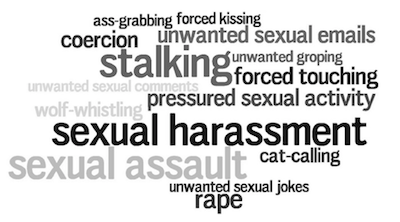-
Advocacy Theme
-
Tags
- Abortion
- Adoption
- Caregiving
- CEDAW
- Disability
- Domestic Violence
- Domestic Workers
- Harassment
- Healthcare
- Housing
- International/Regional Work
- Maintenance
- Media
- Migrant Spouses
- Migrant Workers
- Muslim Law
- National budget
- Parental Leave
- Parenthood
- Polygamy
- Population
- Race and religion
- Sexual Violence
- Sexuality Education
- Single Parents
- Social Support
- Sterilisation
- Women's Charter
Why many survivors do not report sexual assault
August 15th, 2017 | Gender-based Violence, Letters and op-eds, News, Views
This piece was originally published as an op-ed in The Straits Times’ Opinion section on 15 August 2017.
 In 2015, 162 rapes were reported to the police in Singapore. While low numbers of sexual crimes may seem like a good thing, in reality, that can mask the fact that many survivors simply do not report their assault.
In 2015, 162 rapes were reported to the police in Singapore. While low numbers of sexual crimes may seem like a good thing, in reality, that can mask the fact that many survivors simply do not report their assault.
The Sexual Assault Care Centre (SACC), Singapore’s only specialised centre for sexual assault survivors, found that approximately seven in 10 clients who reached out for help last year did not make police reports.
Recently, the state has taken welcome steps to improve the process of reporting sexual crimes to address this problem of under-reporting. The recent proposed changes to the Criminal Procedure Code (CPC) and Evidence Act would ensure protection from publicity the moment a sexual offence is reported, with a gag order on the survivor’s name – putting to bed a common concern many survivors have about exposure of their case through the media.
But so much more can be done to address the major concerns many survivors have about reporting, including fear that they lack evidence of the assault, and unsupportive reactions from friends and family.
Because most survivors know their perpetrators, “evidence” in sexual assault is not just about proving injury or weapon use, or bringing forward eyewitnesses of the assault. They would also have to rely heavily on their memory, which adds to the fears many may have about reporting.
For example, many survivors freeze during the ordeal and are not able to fight or seek help immediately. Questions like “Why didn’t you fight back or scream?” or “If you didn’t want sex, why didn’t you leave?” are common, and when survivors are put through such inquiries, it can add to the confusion and guilt they may already be feeling.
Moreover, no two people respond to assault in the same way – some may visibly show that they are upset or angry, and some may not – but all reactions are valid. Survivors may grapple with their own memory of the experience, knowledge of the details, self-doubt, or feel immense guilt or shame. All of this adds to the distress of making a decision to report.
Jo (not her real name), a client of SACC, shared how she was “in a dilemma about reporting”, that she “lost clarity” of her experience after months of struggling to accept the assault, and managed to break through the fog in her memory only with the support of a friend. She said: “Those images and thoughts that I pushed away were popping up all over the place in my head, disorganised and unwanted. It was a struggle. All I wanted was to organise them so that I could somehow detach emotions and work things out logically, so that I could be clear and prepare a report.”
Another difficulty is when the criminal justice system – and wider society – expect sexual assault survivors to report their cases immediately. Sometimes, when they do step forward, their delays in reporting are used against them.
Take for example a recent court case where a man was acquitted of sexually assaulting a 15-year-old girl. The court, in acquitting the accused, found that the victim was not “prompt in her complaints” and “there were no reasons for her not to confide in members of her family”.
Such assumptions ignore the reality of what survivors struggle with and the psychological impact of trauma. When we question the validity of what survivors can recall or invalidate their experience because of when they chose to speak up, we risk discouraging and disempowering them further.
JO (not her real name), who shared how she was “in a dilemma about reporting”, that she “lost clarity” of her experience after months of struggling to accept the assault, and managed to break through the fog in her memory only with the support of a friend.
By taking into account the well-established realities of sexual assault, first responders such as police officers, doctors, counsellors, friends and family can ensure that survivors receive the help they need when they do choose to speak out.
Many survivors worry how family and friends would react. Some may even fear how others would be emotionally affected by the knowledge of their assault. SACC clients have shared how their own families have responded with disbelief, judgment, resentment or discouraging comments. To encourage reporting, we all need to better recognise how social attitudes and fear of victim-blaming can affect survivors’ willingness to report.
Concerned friends and loved ones can effectively support survivors with a simple “It’s not your fault”, offer resources for counselling or accompany them to make a report or seek medical help.
The authorities have a responsibility to proactively provide referrals to counsellors and agencies such as SACC to support the survivor mentally and emotionally as well.
The problem of under-reporting is not one that can be solved with a few changes to court procedures. At the crux of it, we need to tackle our social attitudes and understanding of sexual assault and how survivors are affected. Our words and actions can create a culture where survivors receive the compassion and protection they deserve.



